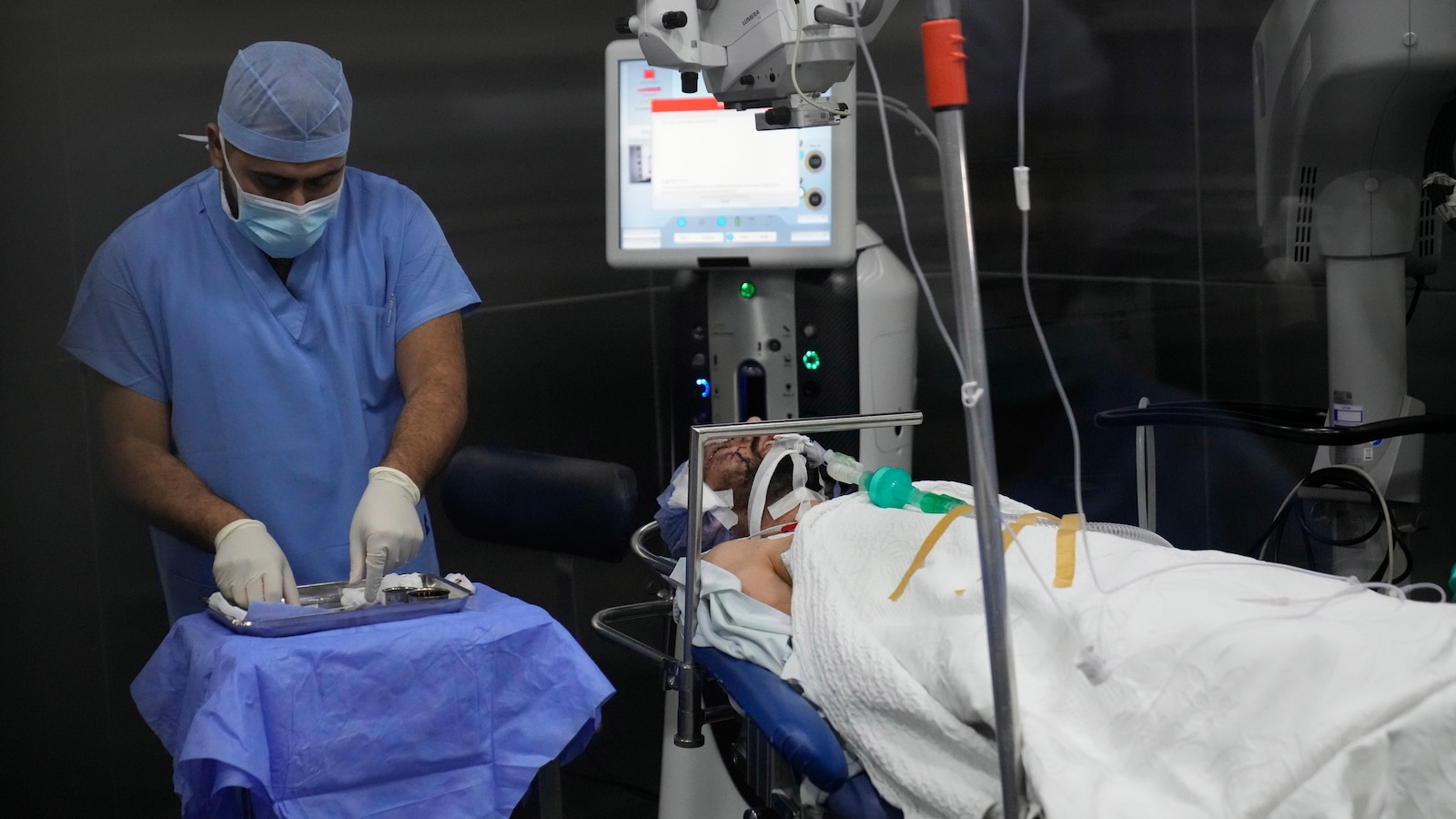Lebanese Ophthalmologist Overwhelmed by Eye Injuries After Mass Pager Explosions
BEIRUT – Ophthalmologist Elias Jaradeh has been working tirelessly for almost a week, struggling to keep up with the influx of patients suffering from eye injuries caused by the mass explosions of pagers and walkie-talkies across Lebanon.
Thousands of the devices, belonging to the Hezbollah militant group, detonated simultaneously last week, resulting in at least 39 deaths and over 3,000 injuries, many with life-altering disabilities. The explosions, widely believed to be orchestrated by Israel, though not confirmed, have left a devastating mark on the country.
Jaradeh, who has performed countless eye operations across multiple hospitals, says the sheer number of patients arriving with eye injuries has been overwhelming. While he has successfully saved the sight of some, many have been left permanently blind.
“What happened was extremely tragic,” he said, his voice choked with emotion. “To see so many people, mostly young men, but also children and women, with eye injuries arriving at the hospital at the same time… it’s heartbreaking.”
The explosions, seemingly targeting Hezbollah fighters, have tragically affected civilians as well. Many victims sustained injuries to their hands, face, and eyes, as the devices received messages and detonated while they were looking at them.
Jaradeh, a veteran doctor who has witnessed the aftermath of numerous wars, civil unrest, and explosions in Lebanon, states he has never encountered anything like this before. The sheer volume of patients with eye injuries surpasses even the devastation he witnessed following the 2020 Beirut port explosion, which killed over 200 people and injured thousands.
Most patients treated by Jaradeh at his ophthalmology specialist hospital are young people with significant damage to one or both eyes. He has found plastic and metal shrapnel embedded in their eyes.
“Containing the shock after the Beirut port blast was, I believe, 48 hours while we haven’t reached the period of containing the shock now,” Jaradeh said.
Despite his professional training, Jaradeh struggles to separate his emotions from his role as a doctor in the operating theater. “No matter what they taught you (in medical school) about distancing yourself, I think in a situation like this, it is very hard when you see the sheer numbers of wounded. This is linked to a war on Lebanon and war on humanity,” he said.
The true extent of eye loss due to the explosions remains unknown. However, the tragic impact on the lives of those affected is undeniable, and the ongoing recovery process is a testament to the resilience of the Lebanese people.

